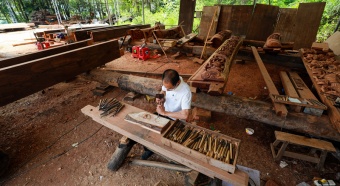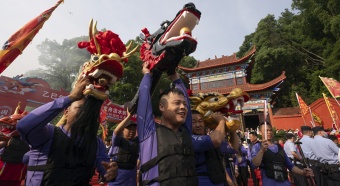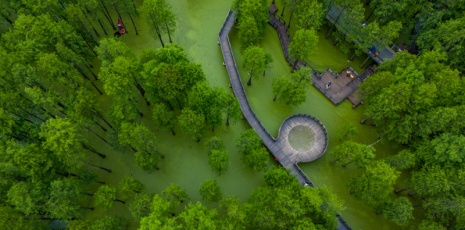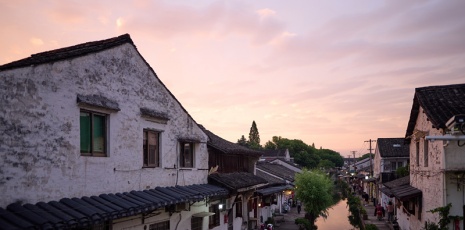
People wave Chinese national flags after a grand national flag-raising ceremony was held at the Tian'anmen Square in Beijing, capital of China, Jan. 1, 2021. (Xinhua/Ju Huanzong)
Daunting development tasks lie ahead, and time is short. The country needs to work quickly to formulate development guidelines and decide how to implement them effectively.
BEIJING, March 3 (Xinhua) -- China's "two sessions" are slated to convene this week, returning to the regular March schedule after last year's postponement to May due to the COVID-19 outbreak. The arrangement reconfirms that China's political, economic and social life is returning to normal, injecting confidence into the world amid the fight against the virus.
China decided the opening dates of the two sessions -- the fourth sessions of the 13th National People's Congress and the 13th Chinese People's Political Consultative Conference National Committee, on Dec. 26, 2020.
The decisive move of setting the time comes against the backdrop of Chinese society remaining on high alert over the pandemic, taking every precaution to ensure public health. Meanwhile, it shows China's determination to pool wisdom to sustain sound economic and social development and exercise governance in response to the people's expectations.
The arrangement has stood the test of time and practice. This week, thousands of national lawmakers and political advisors will gather in Beijing for the important political meeting that covers every aspect of China's development and the people's well-being.

Robots operate on a production line at an automotive glass workshop of the Fuyao Glass Industry Group Co., Ltd. in Fuqing City of Fuzhou, southeast China's Fujian Province, Jan. 12, 2021. (Xinhua/Jiang Kehong)
Daunting development tasks lie ahead, and time is short. The country needs to work quickly to formulate development guidelines and decide how to implement them effectively.
China's all legislative decisions are made after going through procedures and democratic deliberations to make sure the decision-making is sound and democratic. Its efforts to develop a socialist democracy with Chinese characteristics are a people-centered approach with a resolution to transform the people's aspirations into concrete plans and actions.
For the outside world, the two sessions are an important window to understand China. It will be an inspiration to see how China ensures the smooth operation of the meetings with precise epidemic control and prevention measures. It will help the world better seize the opportunities in the post-epidemic era by learning the latest trends of the second-largest economy and the background of its policies.

Vaccines donated by China are seen at a Philippine Air Force base in Manila, the Philippines on Feb. 28, 2021.(Xinhua/Rouelle Umali)
For China, sending signals to the world through the two sessions about how it will cooperate with the international community on key issues such as reducing carbon emissions is not only an effective way to stabilize expectations on China, but also a powerful response to certain fallacies and rumors created by some Western politicians with the intention to stop China's progress.
While COVID-19 vaccines have lit the light at the end of the tunnel, growing worldwide cases of variants coupled with uneven distribution of vaccines have complicated the situation.
On a broader level, global cooperation in many aspects is facing severe stress tests as the world is undergoing profound changes unseen in a century, which are being accelerated by the pandemic.
Whether it is the fight against the pandemic or domains beyond that, the world should join hands to turn the challenges into opportunities. China's two sessions will provide a strong spiritual force for the world to face hardships head-on and move forward.■









